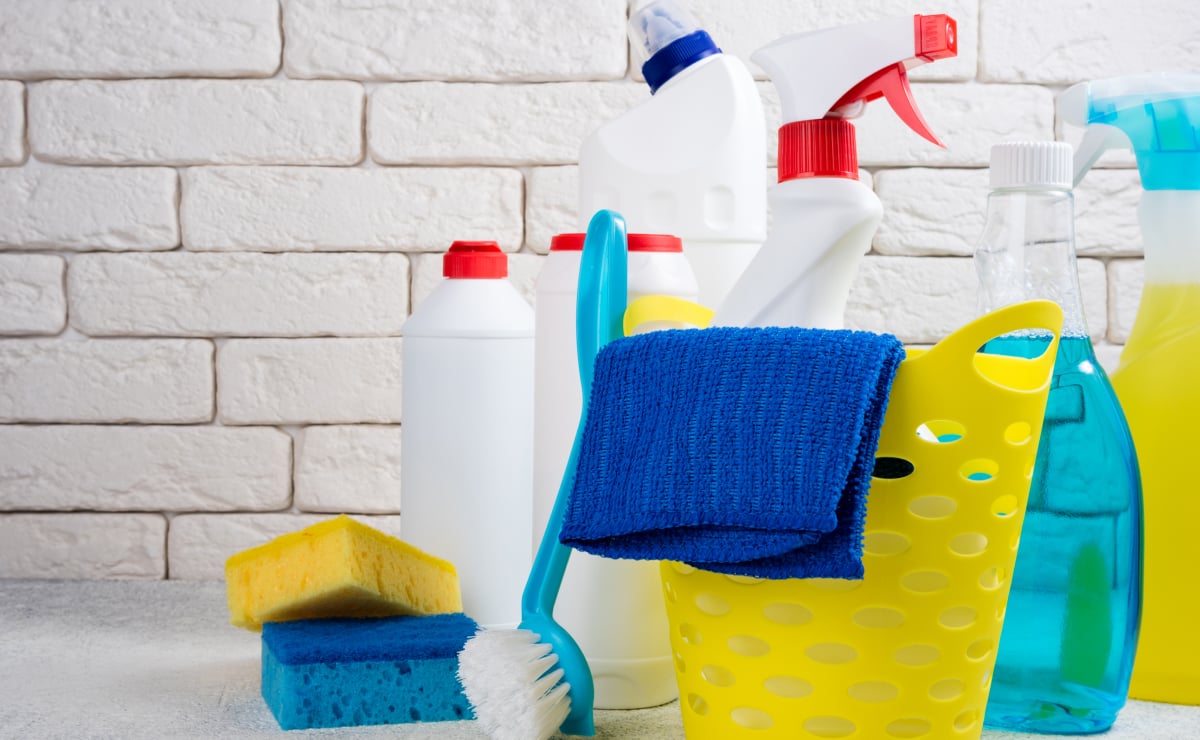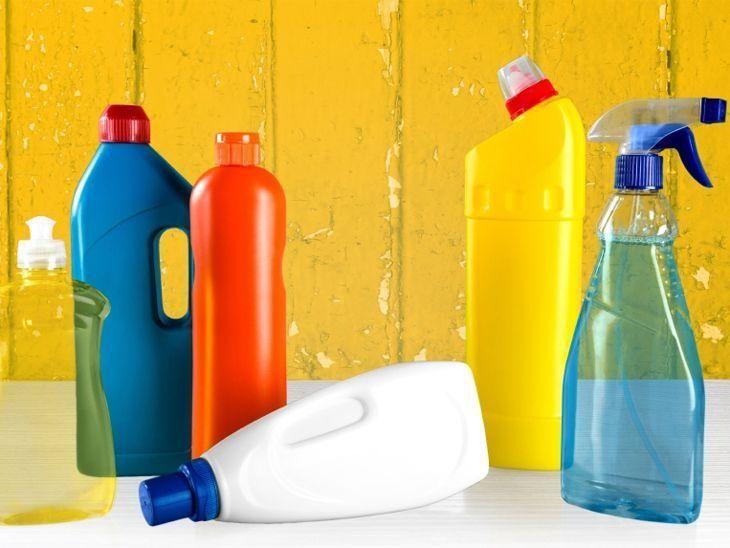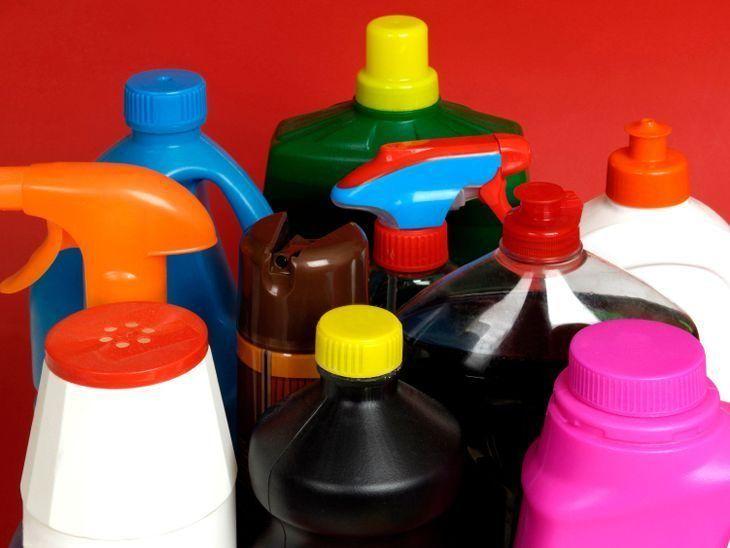Table of contents

When the subject is cleaning, a list soon appears with a huge variety of products and specific items for every corner of the house. That there are many cleaning products, with different fragrances, colors and brands, you certainly already know; however, when it comes to performing an effective cleaning, it is not necessary to use everything available on the supermarket shelves: a good solution is to focus on productsAnother option is to use alternative items for cleaning or even to make your own products.
The choice of cleaning products should always be made safely, one should read the labels carefully so that the product chosen fits the lifestyle of the resident. People who have a busy life and often do not have time to dedicate to a heavier cleaning should bet on the multi-purpose products, which are very versatile.cleaning the house can bet on specific products for each type of dirt.
Paula da Silva is the manager of a cleaning franchise, Dona Resolve, and gives tips on products and interesting alternatives for the hygienization of houses and apartments.quick and efficient cleaning", she points out.
11 essential cleaning products for your home

The most important cleaning products on the shopping lists are those with greater versatility. With the suggestions of the specialist in hand, there is no need to worry about acquiring other materials, except when something very specific needs to be cleaned. Paula da Silva gives tips so that the person responsible for the household chores no longer has any doubts when it comes to using some of the cleaning products.most essential household cleaning substances on the market:
1. alcohol
Alcohol is nothing more than a disinfectant. It is often used not only to clean places with bacteria, but also to clean glass, metals, and mirrors. It can be used directly on surfaces with a damp cloth.
Where to use: in cleaning infected places and also glass and metals.
Trick: do not use for cleaning very large areas, because its evaporation time is very short.
Care: do not use on rubberized surfaces, as it damages this type of material.
2. detergent
The detergent is a neutral-based product, which helps in less deep cleaning. It should be used with a sponge and always removed with water.
Where to use: in cleaning the greasiest dirt.
Trick: Thoroughly removing the detergent residue can make all the difference in cleaning.
Care: The detergent, despite being very suitable because it doesn't damage any material, must be used with care in mixtures with other products.
3. degreaser
The degreaser is a product that breaks down the fat molecules and therefore makes cleaning stoves and sinks much easier. It must be used directly on the surface and then rinsed with water.
Where to use: especially in places greasy from food cooking such as sinks, counters, stoves, and purifiers.
Trick: The degreaser can also be used to clean grease from kitchen utensils such as cutlery and pans.
Care: let it act for a few minutes, so more fat molecules will break down and cleaning will be easier.
4. bar soap or coconut soap
Bar soap or coconut soap is a detergent and degreaser and should always be used with water to lather and then rinsed off.
Where to use: Coconut soap is indicated for cleaning white and delicate clothes, and the neutral bar soap is a product that can be used at any time since its composition does not stain and cleans with power.
Trick: can be used when the specific product for a given material is not known for sure
Care: do not mix the soap with other cleaning materials, so that its effectiveness is not impaired.
5. soap powder
Soap powder is an alkaline product and should be used in washing machines or for scrubbing clothes or shoes.
Where to use: should be used in the washing of fabrics.
See_also: Crocheted Carpet Bead: 70 great designs and tutorials for youTrick: clean the powder soap compartment of the washing machine regularly with hot water to remove product residues
Care: soap powder should not be used when washing floors, although this is a very common practice, because with it you run the risk of corroding the floor covering.
6. softener
Fabric softener is a product that adheres to the fibers of the fabric, leaving it softer and smelling better. It should be used in the washing machine or when items are left to soak.
Where to use: in the washing of clothes and fabrics in general.
Trick: The softener can also be used to clean glass and ceramic floors, and to add extra shine to tiles. Its chemistry contains quaternary ammonium salt, which is a great moisturizer and perfume fixative. When cleaning glass and floors, opt for the types that contain silicone.
Care: Never put the softener directly on the clothes, it must be diluted in water so that it does not stain the fabrics.
7. sanitary water
Sanitary water is a very effective bleach and disinfectant used for cleaning houses. It should be diluted in water, according to the instructions on the package, and left to soak the dirty places.
Where to use: in washing white clothes, floors and tiles.
Trick: to disinfect very dirty places, apply the pure product, carefully, and let it act for some minutes
Care: never use bleach on colored clothes, as it can stain easily. apply it in ventilated places, as the smell of the product can be very strong for sensitive people and those with respiratory problems.
8. multipurpose
The multi-purpose products are low alkaline products that act on oils and grease. They must be used with sink cloths, those that are rinsed and reused, directly on the surfaces to be cleaned.
Where to use: can be used on stoves, sinks, tiles, and plastic materials that need cleaning to remove grease.
Trick: the multi-purpose is a very versatile product and can often be used to clean tables after meals; besides cleaning, it leaves a pleasant smell in the room, neutralizing the odor of food.
Care: avoid cleaning wooden surfaces or porous materials with this product.
9. disinfectant
Widely used to leave the environment with a pleasant smell, the disinfectant also has the capacity to sterilize surfaces, being able to destroy microorganisms in the installations. The orientation is to always clean the whole place before applying the product, leaving it to act for 10 minutes.
Where to use: can be used on floors and installations.
Trick: clean the site with a broom and a dry cloth before applying the product, so the cleaning is more effective.
Care: Keep disinfectants away from heat and fire, as they can be flammable.
10. wiper
The glass cleaners are products with the capacity to remove specific stains and dirt, promoting shine in glasses of different types. It must be applied on the surface with a specific squeegee. The foam formed must be rubbed off and removed so as not to stain the surface.
Where to use: on window glass, doors, furniture, and automobile windshields.
Trick: start cleaning with the product always on the top of the glass, dragging vertically, in a straight line, until the end.
Care: the product must always be used evenly and without excesses.
11. sapol
Saponol is a mineral soap that is effective in removing dirt and exists in liquid and powder versions. When it is powder, it must be diluted in water and applied with a cleaning sponge; when it is liquid, just apply it directly on a cloth or flannel and rub the place, removing the excess with another clean cloth.
See_also: TV Rack: 50 decoration ideas to make your living room look amazingWhere to use: can be used on tiles, stainless steel pans, stoves, and rustic floors.
Trick: do not mix it with other compositions, so as not to risk nullifying its effect.
Care: Soap is a slightly more aggressive product, so it must be used with gloves. Another characteristic of the product is that it is abrasive, i.e. it can scratch more sensitive surfaces.
10 important tips for the safe use of cleaning products
It may seem simple to use cleaning products, since they are part of our daily lives, but there are important tips and care to be taken when storing, handling, and even disposing of these items. Check out 10 tips from Dona Resolve brand manager Paula da Silva:
- Consult the packaging label;
- Keep cleaning products out of the reach of children;
- Make sure to use safety items such as gloves and masks;
- When letting a strong product act for a longer time, avoid staying on the spot;
- Be careful when handling the products;
- Avoid contact with the eyes;
- If you have pets, make sure that the product does not harm them;
- Always check if you are allergic to any of the compounds in the product to be used;
- Store cleaning products in a specific place, without mixing them with other household items;
- Discard the labels after washing them thoroughly so that no product residue is left.
Are cleaning products bad for your health?

Many doubts arise when we think about the harm that cleaning products can do to our health, after all they are necessary items in our daily lives. Fabriciano Pinheiro, a biomedical specialist with a Master's degree in Toxicology and Toxicological Analysis, explains that cleaning products, because they are chemical products, can present risks to human health when there is direct or excessive contact or if they areAmong the cleaning products, those recommended for heavy-duty cleaning, such as scourers and removers, are usually corrosive and have the capacity to cause skin destruction when in direct contact for a certain period of time; besides their corrosiveness, certain products can also present toxicity characteristics to human health when inhaled,in direct contact with the skin or if accidentally ingested", he alerts.
Fabriciano also says that ANVISA is the agency responsible for regulating the marketing of cleaning products and requires companies to inform about adverse health effects on the product label, "It is also required that the care and precautions for the proper use of the product during cleaning are explicit," he adds.
To find out the best way to choose products that are not harmful, the toxicology expert explains: "there is no rule, heavy duty cleaners, regardless of the brand, are likely to have the capacity to cause some harm to human health. The recommendation is to read and follow label instructions carefully, as observing the precautions will preventany accident during use".
Alternative products for cleaning

There are many cleaning products available in the market and, besides being very specific, many times the person responsible for cleaning finds himself in an emergency situation without the most traditional products. There are some items very easy to be found at home that can work as alternatives. Paula da Silva lists seven of them and gives tips for common uses.
- Sodium bicarbonate: can be used at various cleaning times, such as, for example, for mold removal. Just mix it with water and sanitize the environment.
Baking soda can be very useful, also, in cleaning the cutting board. To get rid of odors from the wooden cutting board, rub the surface with baking soda and rinse very well.
- Lemon: It is also widely used to clean microwave ovens: some food smells such as pizza, lasagna, and others impregnate the appliance, so to eliminate these odors, just cut lemon slices and put them in a bowl with hot water and heat them for a minute on highpower.
- Vinegar: Applying vinegar to remove grease from surfaces works very well, but it is not advisable to use it on varnish or wax coatings, as it can damage the texture of the piece. The orientation is to add a mixture of half a cup of water and half a cup of vinegar in a container and spray it on the dry surface. Then, simply remove the grease with a double-sided wipe and a cleaning cloth.
- Hydrogen peroxide: the oxygenated water is very effective in removing blood stains. for this, the indication is to pour a little of the product directly on the stain and leave it acting for approximately five minutes. after this process, it is necessary to rub the piece with your hands or with the help of a very soft brush in order not to damage the fabric.
- Linseed oil: Linseed oil is a product that can be used to clean and preserve wooden furniture. It works by protecting the wood and can be used instead of conventional products such as varnish and wax. The application should be done with a cloth on the clean and dry surface in circular movements. A warning: this material is recommended only for wood indoors because thecontact with the sun can damage and darken the piece.
How to make cleaning products at home
Another way out when it comes to cleaning is to make your own products. Some recipes are simple and can be made by the resident, but always with great care and following instructions and measurements, so that the product is effective and not harmful to health. Below you will find simple recipes for key products:
Sanitary water
- Set aside a large bucket;
- Put in 9.5 liters of clean water;
- Slowly add 1.5 liter of sodium hypochlorite until complete homogenization.
Softener
- Heat 3 liters of water in a non-aluminum container;
- Wait for the water to boil;
- Add 100 grams of grated soap to the water;
- Shake until the soap dissolves;
- Then add 100 grams of glycerin under stirring;
- Add 7 liters of cold water;
- Mix well to homogenize the softener.
Stone Soap
- Dissolve 500 grams of 99% caustic soda in flakes in 1 liter of water;
- Store the mixture overnight so that it gets cold;
- The next day heat 3 kilos of used oil until it is warm;
- Strain the oil into a non-aluminum container;
- If desired, add an essence of your choice to the strained oil;
- Pour the soda mixture under stirring into the oil;
- Stir the mixture until the soap begins to thicken;
- Cut the bar of soap the other day.
However, specialist Paula da Silva warns: "you have to be careful when using homemade products, because everything depends on how the ingredients are applied and diluted.
Multiuse, disinfectant, degreaser, bleach, and other items are great allies in the cleaning of houses and apartments, but many times an alternative or homemade product is also able to leave the environments clean and smelling good.
With so many options available, it is worth following the expert's tips to know how to get the best out of each product and how each one fits into your lifestyle. And to make your home cleaning routine easier, see how to organize your home in practical and simple tips.


